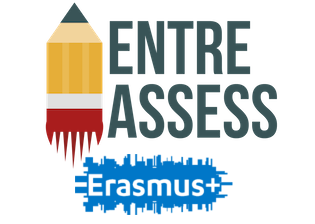 Definition: An ipsative assessment compares a learner’s current performance with previous performance either in the same field through time or in comparison with other fields, resulting in a descriptor expressed in terms of their ‘personal best’.1
Definition: An ipsative assessment compares a learner’s current performance with previous performance either in the same field through time or in comparison with other fields, resulting in a descriptor expressed in terms of their ‘personal best’.1
Description: You are surely familiar with the term “personal best” in athletics. That’s a good example of ipsative assessment. It is typically used in informal and practical learning such as sports, music teaching and more recently in online gaming. It works as an iterative process where teachers and students work together to diagnose particular individual strengths and weaknesses, set some achievable goals or targets against which progress will be assessed in the short or medium-term and articulate a clear actionable plan to make them happen.
Benefits: By definition, it’s a highly personalized form of assessment where progress is measured against the needs and goals of the individual, not in comparison to external standards or performance of peers. Thus, it improves self-esteem and confidence, particularly for those who do not achieve high grades or put off by competitive environments. Continued dialogue between learner and teacher secure better engagement with feedback It does also give tutor and students a longer- term view of assessment.
Challenges:Ipsative assessment is inevitably subjective and not amenable to comparisons (low validity) or standardisation. From a teacher’s perspective, it may feel like an additional burden to teachers’ workload and it requires extra-effort to get familiar with it. On the other hand, students may be reluctant to quit a longstanding habit of comparing their performance with others. At some point a standard is needed for an award so perhaps a “blend” of ipsative and criteria-referenced approaches will be more realistic.
Applied to entrepreneurial education:Ipsative assessment may be a good way to facilitate feedback on development of generic or transversal skills2. Ipsative assessment may contribute to a more coherent assessment particularly at a time when clear models of progression or standards on the acquisition of entrepreneurial skills are largely missing. Discussion of progress will be greatly enriched if it takes place across subjects. Again this requires establishing a clear sense of direction and greater coordination among teaching teams. The good news is that the idea of ipsative assessment is already implicit in some pedagogic techniques that are becoming common currency in Entrepreneurial Education such as learning journals, reflection on practice and coaching. This is a relatively radical and new approach that holds promise for a more inclusive assessment. Further practice and research will be needed to determine its full potential.
1 Isaacs, T., Zara, C., Herbert, G., Coombs, S. J. & Smith, C. 2013. Key concepts in educational assessment, London, UK, Sage Publications.
2 Hughes, G. (2011). Towards a personal best: A case for introducing ipsative assessment in higher education. Studies in Higher Education, 36(3), 353-367.


